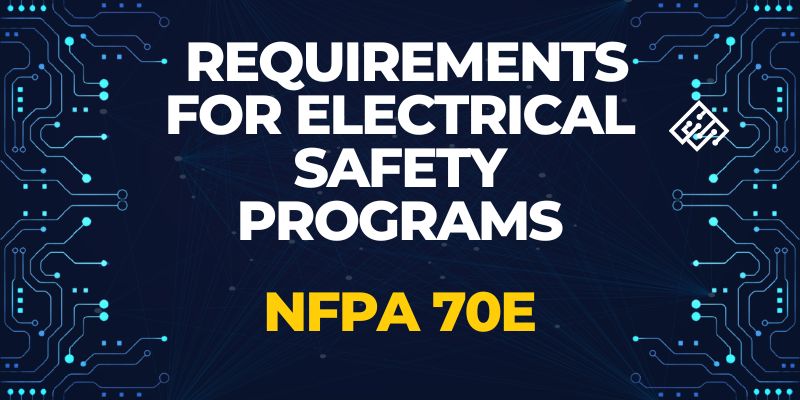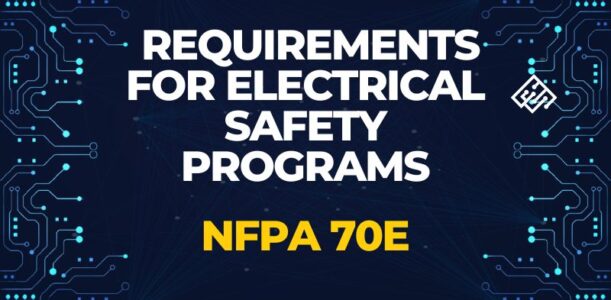
Get A Quote
NFPA 70E: Requirements for Electrical Safety Programs
NFPA 70E, the Standard for Electrical Safety in the Workplace®, was originally developed at the request of OSHA to help businesses and workers avoid fatalities or injuries in the workplace due to electrocution, shock, arc flash, and blast. NFPA 70E helps companies with compliance to OSHA 1910 Subpart S and OSHA 1926 Subpart K.
The employer’s ESP is what dictates employee policies and procedures regarding electrical hazards specific in the workplace, although requirements for the ESP are found in NFPA 70E. Workers must be trained on the company’s ESP and someone in the company must be trained on NPFA 70E to ensure that the ESP is in compliance. While the ESP provides a blueprint for employers to follow, it is the employer’s responsibility to establish procedures, perform risk assessment evaluations, provide all necessary personal protective equipment (PPE) and protect employees from electrical hazards.
NPFA 70E does not provide specific detail to companies on how to achieve this in a particular workplace. The employer is required to establish all practices and procedures employees should follow and to implement all safety-related work procedures and practices. It is not enough for companies to require employees to follow NFPA 70E regarding safety-related electrical issues. Companies must have their own ESP, which should include NFPA 70E requirements.
NFPA 70E, Section 105, 110, and 130
All articles of NFPA 70E are important, although some people familiar with this standard place significance on certain articles such as article 130, which covers requirements when employees are working with electrical hazards and an electrically safe work condition cannot be established.
Many others familiar with NFPA 70E consider articles 105 and 110 even more important as those are the articles that dictate where the responsibility resides to protect employees. All employers must be committed to improving the electrical safety of all employees no matter where they work in the company. This requires employees to have an understanding of the electrical risks and hazards facing employees during daily assigned tasks.
Section 110.1 of NFPA 70E sets the goal of an ESP, which is the same as the OSHA requirement for exposure to known electrical hazards to be eliminated for employees. The hazard must be eliminated by design or through the installation of an electrically safe work condition. Employees should not be asked to occasionally expose themselves to hazards due to pressure, revenue, or expediency, and they should feel confident that management enforces the ESP policy regardless of any situation.
HRSS Offers Commercial Fire Safety and Code Compliance
High Rise Security Systems, HRSS, offers commercial fire alarm and life safety systems designed for complete code compliance to all NFPA standards. Our fire safety specialists possess decades of technical knowledge and a deep understanding of applicable local, state, and federal building and safety codes. Our fire safety consulting services help companies to meet code compliance with all regulations and include initial inspections to recommend the best fire alarm system design and equipment to protect your property.
HRSS is an industry-leading commercial fire and life safety system provider protecting businesses in and around Chicago. We offer comprehensive services, including inspections, testing, repairs, maintenance, upgrades, and monitoring. Contact us to learn more about protecting your people and property with code-compliant commercial fire alarm systems.



